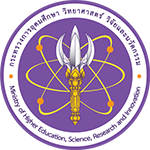Towards Sustainable Aquaculture through Innovative Technology and Open Platform
Post Date : 29 July 2021
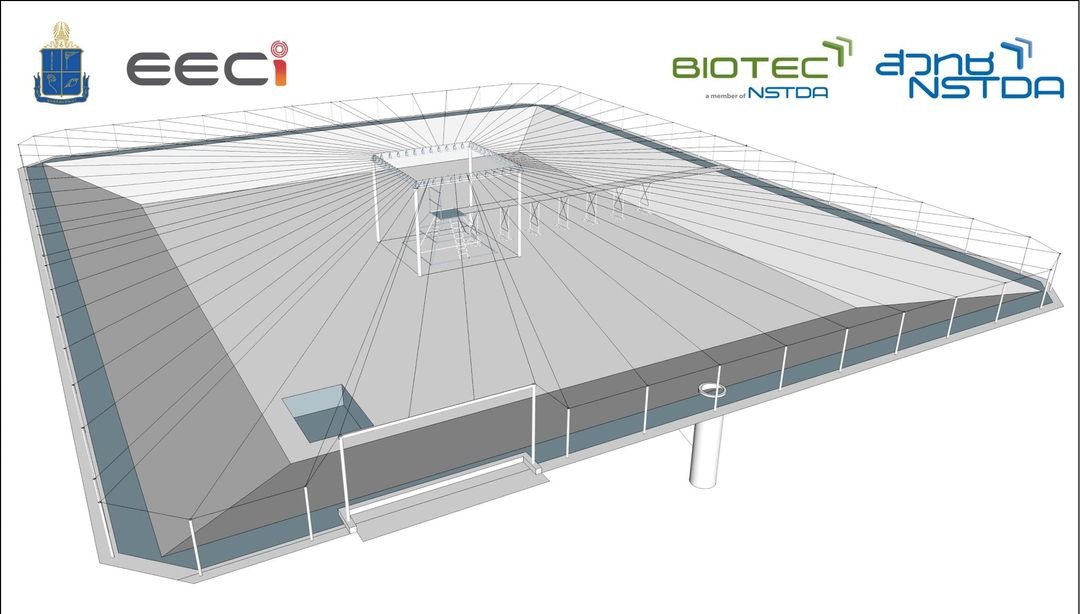
Shrimp farming has played a significant role in Thailand economy since 1970s. Thailand once led the world in shrimp export, but nowadays the export value has decreased due to disease outbreak, scarcity of water for farming sector, and restrictive import measure associated with environmental friendliness in the international market. This appears to be a major hindrance to sustain shrimp farming industry which, in turn, leads to the displacement of skilled community workforces into unskilled industrial labors and subsequently alters the local way of living.
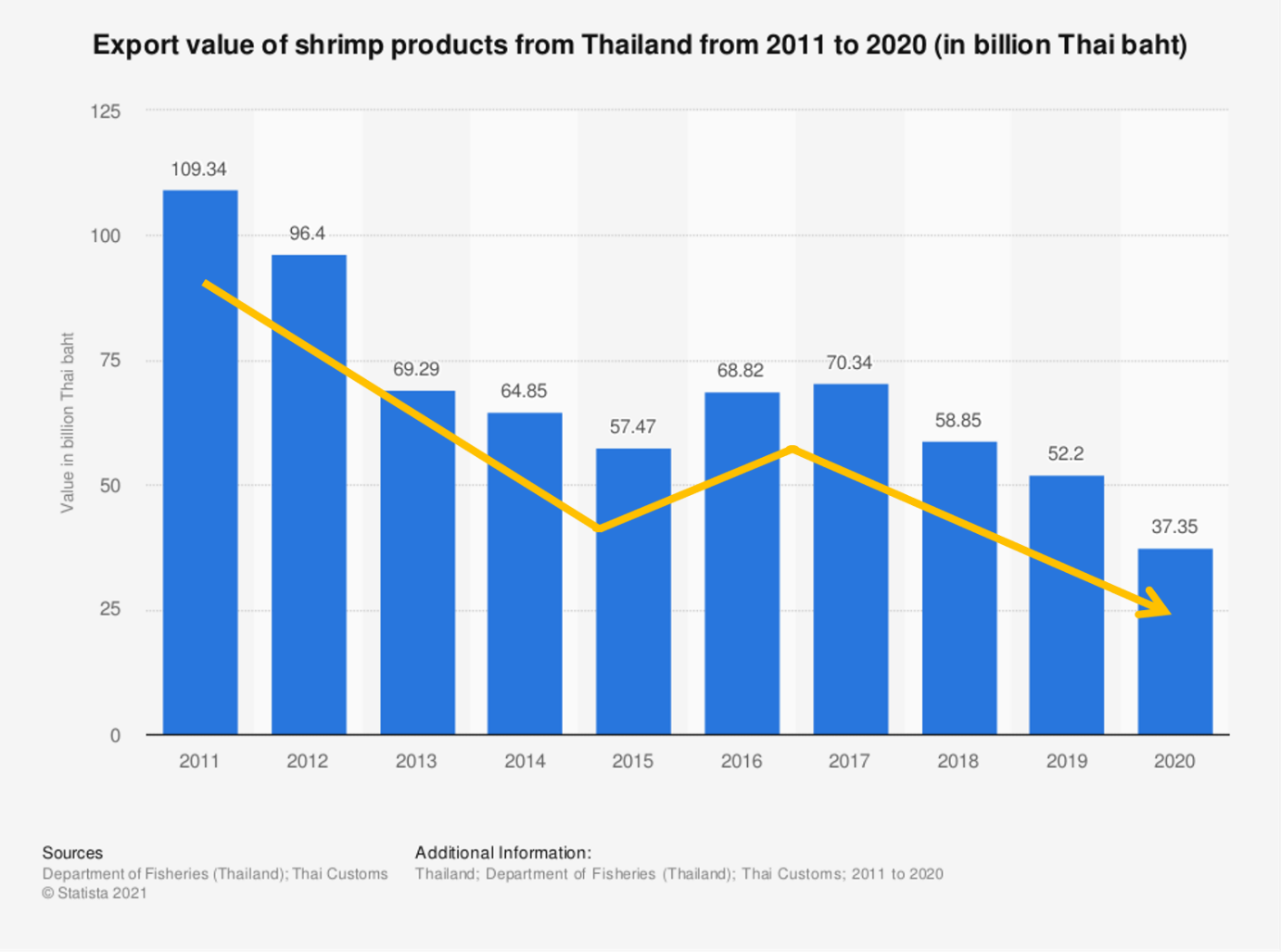
The eastern part of Thailand is one of the geographic areas focusing on shrimp farming and fruit orcharding owing to excellent water supply and logistics. However, the region is also strategically developed as a special economic zone, particularly the Eastern Economic Corridor (EEC) which comprises Chachoengsao, Chonburi and Rayong Provinces. Tensions and conflicts between various stakeholders with different ways of life arise inevitably due to different interests and uneven resource acquisition, especially on water supply distribution. The agricultural sector including shrimp farming, unfortunately, is on the losing end as their perceived economic merit and value additions are lower. For agriculture and aquaculture, modern methodologies which are more effective in terms of productivity, water consumption, and environmental friendliness, are seen as sustainable solutions to the region. In addition, advanced industry steering economic development should evolve in parallel and in harmony with sustainable fruit orcharding and shrimp farming to preserve the socio-cultural fabrics of the local community.
The Eastern Economic Corridor of Innovation (EECi) is an innovation infrastructure under the EEC development. Its mission encompasses supporting sustainable and inclusive economic development through technology and innovation. EECi works extensively with research organizations and local community to match modern technologies with needs and wisdom of the locals. As per shrimp farming, EECi supports the National Center for Genetic Engineering and Biotechnology (BIOTEC) on its collaborative platform for research and demonstration of shrimp cultivation technologies at the demonstration farm of the Chaipattana Foundation in Chachoengsao Province.
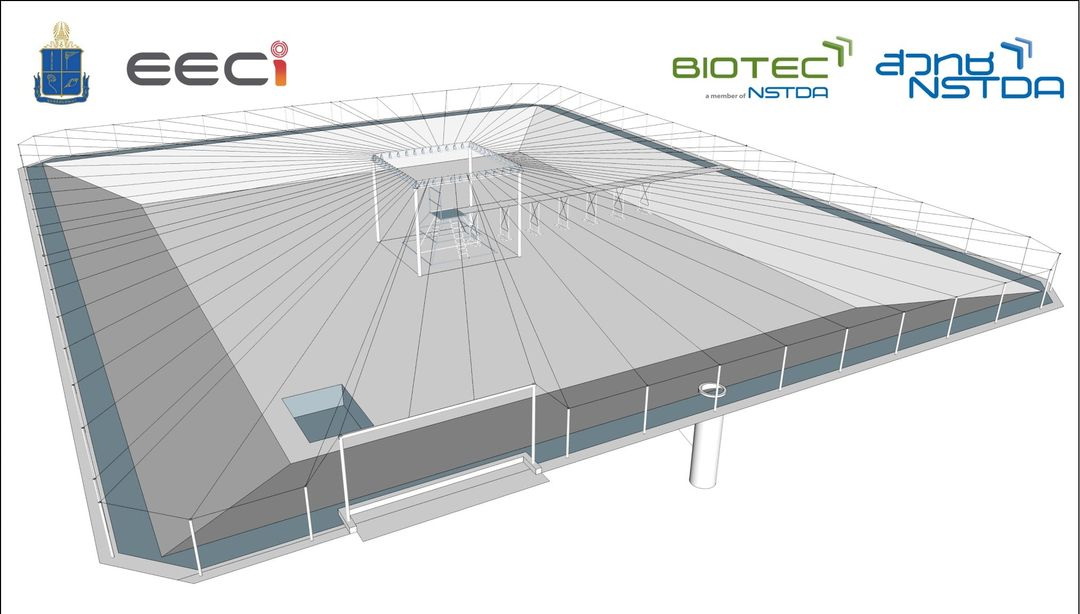
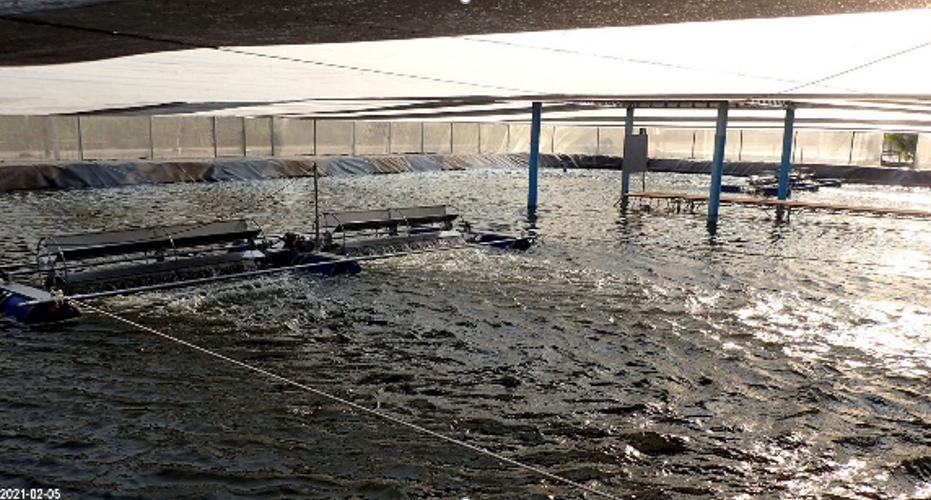
Led by Dr. Sorawit Powtongsook, Director of Integrative Aquaculture Biotechnology Research Group, BIOTEC, the project has set up a polyethylene-lined pond with smart system to monitor key parameters for shrimp culture. The pond is equipped with nitrification biotreatment technology to maintain good water quality with almost zero water exchange throughout the 60-day culture period whereas the traditional farming requires a 10-30 percent water discharge from shrimp pond daily This eliminates the need for external water supply and reduces a significant amount of wastewater discharged to the environment; hence, reduced the water consumption and the environmental footprint in one goal. making shrimp farming a more sustainable activity. The smart system is also installed to monitor water quality in the pond, e.g. oxygen content, pH, etc. along with precise disease monitoring system to enhance the shrimp health.
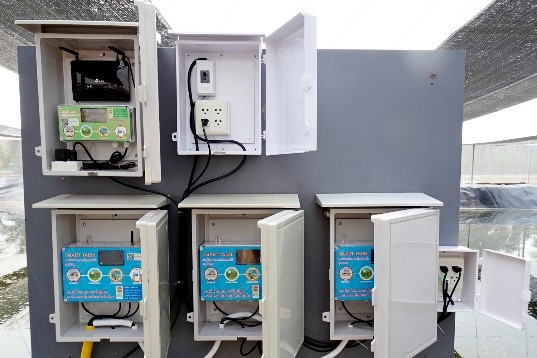
By applying open platform concept, the platform lends itself as a testbed for technologies developed by private sectors, partner universities and government research agencies as well as a demonstration site for transferring the sustainable aquaculture practices to Thai shrimp farmers. The farmers’ pond is equipped with various sensors and devices from several companies so that the researcher team can comprehend the effect of culture parameters to shrimp health. The aim of this research is to achieve the self-sustaining culture system with the minimal use of costly monitoring system. Novel technologies and findings within the demonstration site, for instance, propeller design, pond structure, high efficiency aerator, and IoT system, can be shared with the interested publics, especially local farmers with exploratory mindset.
The Chaipattana Foundation’s demonstration farm serves as both a state-of-the-art aquaculture technology and a comprehensive learning site for local farmers who are keen on self-reliant farming.
The ultimate goal of this collaborative project is to promote sustainable aquaculture in Thailand and to equilibrate between modern advancement and environmental concern. Moreover, the demonstration site will be a knowledge multiplier for not only local farmers but also young generation who will be the future food producers afterward. This is, however, just the first chapter of the book and we are looking forward to working with those with similar mindset to compose the next chapters together.
Source:
www.nstda.or.th
ฟาร์มสอง น้ำวิจัยและพัฒนา
SHRIMP FARMING EXPERIENCES IN THAILAND
Globefish Trade Statistics – Shrimp. April 2020
